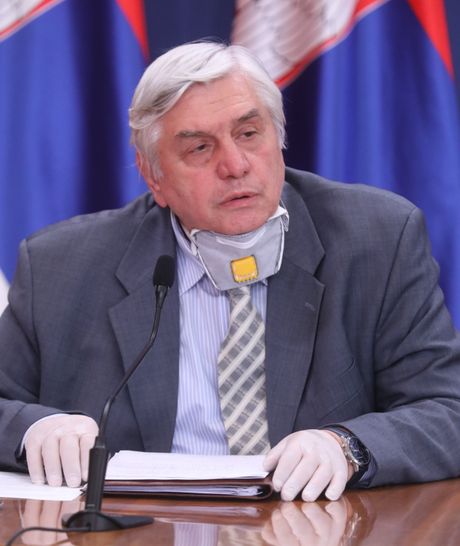Will Serbia face a wave of coronavirus this summer? Tiodorovic: There is another concern

Daily statistics remind us that coronavirus is still here. Serbia had 356 new cases on Tuesday this week, which is 26.7 percent more than the previous Tuesday, when there were 281. This was also the highest number of new cases in one day since May 18, when there were 361 infected people.
However, the numbers are not high, and according to experts, nothing alarming is expected regarding coronavirus. The summer will be stable, and if there is any increase, it will happen in the fall, when nothing dramatic is expected either.
Statistically speaking, in the last 14 days, the ECDC coefficient - the number of infected per 100,000 people - has been growing, while on the other hand, globally, the numbers in 17 European countries have also increased. At the same time, warnings are coming from the WHO about Omicron subvariants BA.4. and BA.5.
Epidemiologist and member of the Crisis HQ Professor Dr. Branislav Tiodorovic told Blic that something like this was expected during the summer months, considering that people are going on vacation and not wearing masks, but that none of these figures are alarming.
"It's summer, people are traveling, there are no restrictions, and many have forgotten that coronavirus is still here. Of course, we are not talking about something that is alarming, because our summer will be more or less like that. Those figures that vary do not really represent any alarming signal, because such oscillations are expected. We are monitoring movements, and the virus is definitely here and it will continue to be transmitted. It's good that we are talking about Omicron, which really does not cause more difficult symptoms, like what we have seen in the months behind us. Of course, it can be complicated for those with a weak immune system and associated diseases, but in general coronavirus has weakened a lot, as we have seen it manifest itself," says Professor Tiodorovic.
When it comes to the spike in numbers, we saw a situation similar to that at the end of June and the beginning of July last year, when the numbers grew, so Serbia had 1,000 daily new cases in August, 4,000 in September.
"We should not be making such a comparison, after all we had a different situation then. No sudden spike is expected, but we are certainly ready for the fall when school starts, and then work in collectives, and as always the virus is most easily transmitted then. Although mutations are certainly possible, it is not expected that there will be any significant changes. Now they are warning about new subvariants, but we have already seen Omicron, so I think that is really not alarming either. What we need to know, and what we must not forget, is that coronavirus is here, the pandemic has not been declared over and we must be aware of that. Also, Greece is interesting to us because our people mostly go on vacation there. We will certainly have a peaceful summer," said Professor Tiodorovic.
Much ado about monkeypox
With the appearance of monkeypox, the question arose as to whether this disease could cause trouble. Although it has still not been registered in our country, interest in and fear of infectious diseases is not waning among people. However, doctors say that coronavirus and what we went through with Covid should not be compared to other diseases, and that apart from caution, we should not think in other directions.
"We should always be careful, but that does not mean that monkeypox can cause us a big problem. One should be aware that after Covid, people are in such a state that they worry about every infectious disease, but this time I would pay more attention to measles, because the percentage of vaccination coverage of children is low. That should be our focus," Tiodorovic said.
As for monkeypox, the World Health Organization (WHO) announced that the virus has been confirmed in 1,600 people since the beginning of the year, and that 1,500 more cases are suspected in 39 countries.
The WHO director specified that among those countries, there are seven in which monkeypox has been present for years, while 32 countries have been affected now, reports TASS. According to him, 72 deaths have been reported in previously affected countries.
He added that there were no reported deaths in the countries where monkeypox appeared recently, although the WHO is checking reports from Brazil about a death related to that disease.
The WHO director assessed that global appearance of monkeypox is "unusual and worrying." He stated that the WHO does not recommend mass vaccination against monkeypox and that smallpox vaccines are expected to provide some protection against monkeypox.
(Telegraf.rs)
Video: Pogledajte predivan snimak sa Košutnjaka: Sankanje u punom jeku
Telegraf.rs zadržava sva prava nad sadržajem. Za preuzimanje sadržaja pogledajte uputstva na stranici Uslovi korišćenja.

